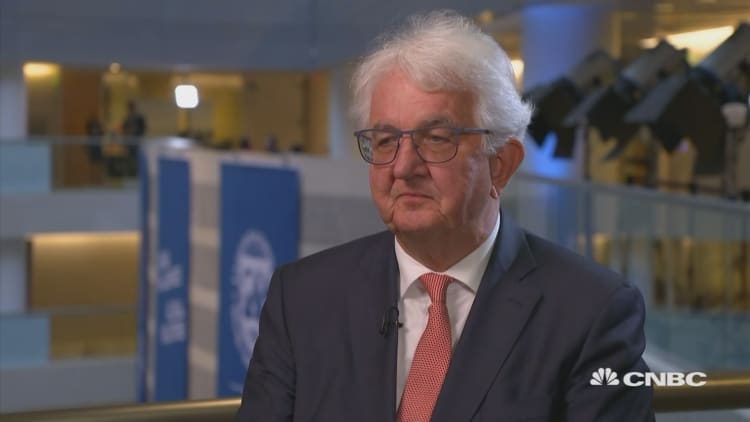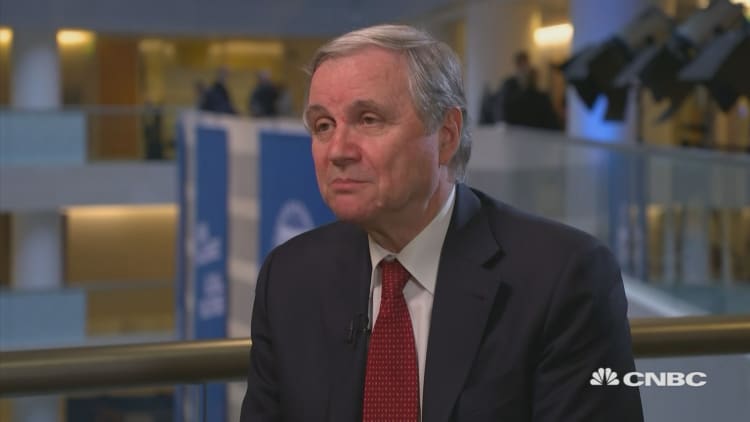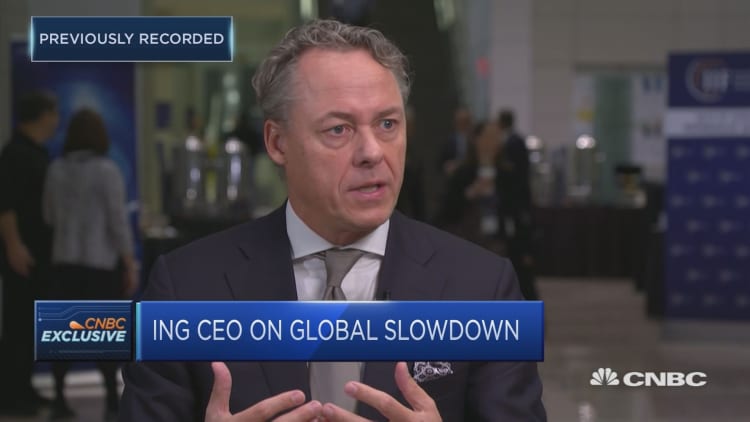
Two members of the European Central Bank (ECB) have expressed concern at its current negative rate policy, fearing "unintended consequences" it could have on the region's financial system.
Italian central bank chief and ECB member Ignazio Visco, considered a dove that backed President Mario Draghi's recent policy announcements, told CNBC that negative interest rates were the standout "unconventional" policy that had been implemented by the euro zone's central bank.
"I'm concerned. I'm concerned of unintended consequences," he told CNBC's Geoff Cutmore Thursday at the IMF and World Bank annual meetings in Washington, D.C.
"We have done a lot of analysis. At the end, we concluded that the package that we put together would be beneficial and even the elements of the package taken one-by-one would have a positive effect up to a point. And I think we are very close to that point. I don't want to pass that point and then end up in a trap of negative interest rates."
"So we have to be very careful about the side effects," he added.
The ECB's recent policy decision saw the launch of a substantial package of quantitative easing (QE), also known as large-scale asset purchases, and further reduce its main deposit rate by 10 basis points to -0.5%, a new record low.
A negative deposit rate essentially charges banks to park cash at the ECB, which can dent profits at lenders who are still recovering from the sovereign debt crisis of 2011. It has fueled concerns that it's also stifling investment and potentially causing fund managers to overstretch in the search for yield.

In a bid to alleviate some of the pressure from negative rates on bank balance sheets, the ECB introduced a two-tier rate system which exempts a portion of a bank's deposits from the levy. However, data from Pictet Wealth management shows that the exemption would only result in an annual saving of 3.1 billion euros ($3.4 billion) for the entire euro zone banking system.
Visco said that the policy had so far had a "neutral" effect on banks' profits, explaining that margins had been reduced but loans had increased to compensate. He called negative rates "bearable" for the time being but said other policy moves, like asset purchases, should be prioritized in the future.
Meanwhile, Robert Holzmann, ECB member and the current governor of Austria's central bank, told CNBC that negative interest rates are "not a very good idea economically and socially."
Holzmann, seen as hawk at the central bank who rallied against the recent package, has called for the ECB to reduce its inflation target to thereby decrease the need for unconventional policy instruments. A relatively new member to the board, he told CNBC: "I decided to be outspoken and to change the atmosphere and tone in which the discussion has taken place so far."
"As a newcomer it's useful to be very outspoken at the beginning, not after half a year, (a) year, because then you become part of the establishment," he added.

—CNBC's Elliot Smith contributed to this article.


